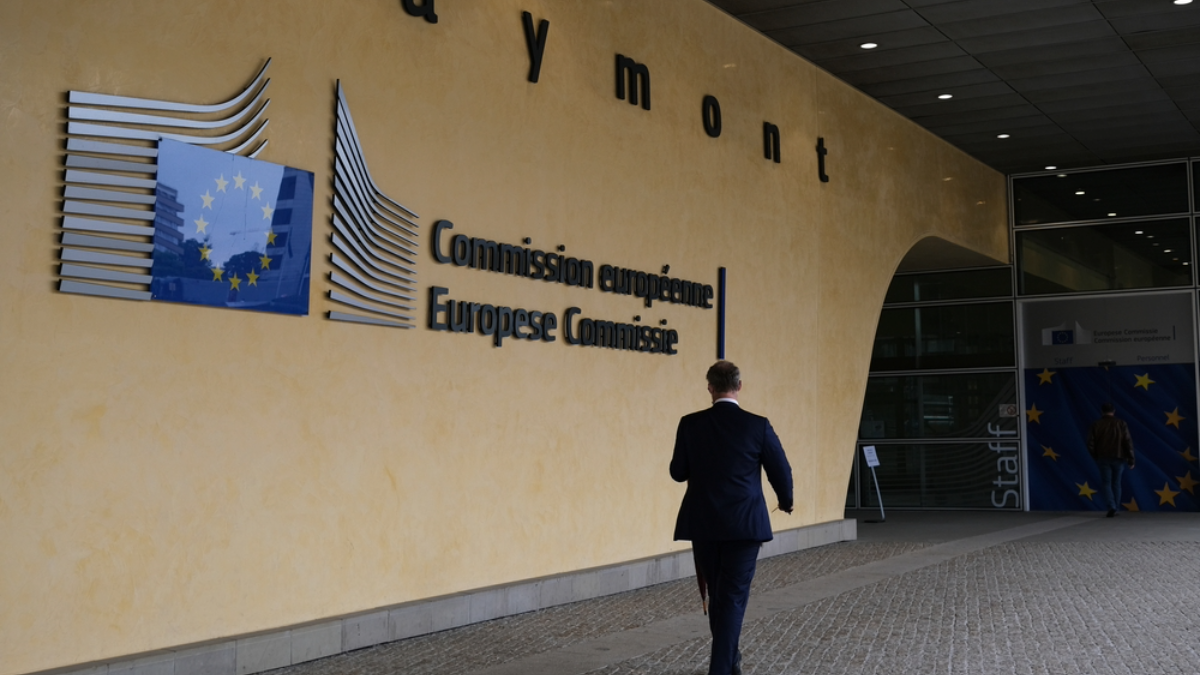Europe's Digital Services Act: Where Are All The Trusted Flaggers?
Inbal Goldberger / May 13, 2024
European Commission headquarters in Brussels, Belgium, July 2021. Shutterstock
Since February 17, when the Digital Services Act (DSA) came into force for all online platforms across the European Union, I have been frequently refreshing the European Commission’s page to see the list of trusted flaggers.
Under Article 22 of the DSA, trusted flaggers are entities recognized for their particular expertise in flagging illegal content and their independence from platforms, that “should be awarded by the Digital Services Coordinator of the Member State in which the applicant is established and should be recognised by all providers of online platforms within the scope" of the DSA.
In theory, trusted flaggers are a great idea. They provide a reliable channel for online platforms to identify and address harmful content. Leveraging expertise from domain-specific entities could enhance the quality of reports and improve enforcement rates, compared to the overwhelming volume of often unactionable user reports.
In fact, the concept of trusted flaggers is not new, but they have typically been identified solely by platforms. For example, YouTube operates a Priority Flagger Program that bears similarities to the DSA’s trusted flaggers concept. The major difference is that it is a voluntary program under the platform’s terms: YouTube decides which entities to designate as trusted flaggers and can revoke this designation under certain conditions. Under the DSA, this power shifts to the local Digital Services Coordinator (DSC). The DSC grants the trusted flagger status, and platforms no longer engage with them on a voluntary basis.
A publication from Coimisiún na Meán, the Irish media regulator, includes a list of 60 areas of illegal content covered under the DSA identified by a subgroup of Digital Services Coordinators, ranging from animal harm to hate speech and copyright infringement. Given the 27 member states and the diversity of the content areas, it seemed reasonable to expect thousands of eligible entities.
Almost three months later, the list remains astonishingly short. To date, only a Finnish copyright anti-piracy center has been officially recognized as a trusted flagger.
The anticipated influx of trusted flaggers has not yet materialized. Why is this the case?
Barriers to Registration: In some member states, such as France, Belgium and Germany, the absence of appointed digital services coordinators has created a bottleneck. Entities that might want to register simply have no pathway to do so. In other states, DSC are still forming the processes around registering and assessing candidates.
Resource Constraints: NGOs and civil society organizations, including ones that have a well established process with platforms for reporting illegal content, are already operating at capacity with their primary missions. The additional obligations of trusted flaggers could stretch these organizations too thin.
Incentives and Disincentives: What are the benefits for an organization to become a trusted flagger? The role may not align closely with its core mission or enhance its reputation, and could come with downsides, such as reputational risk (accusation of censorship or over-flagging). Moreover, the operational burdens and potential reputational risks, especially if their application is denied, may act as significant deterrents.
Independence of platforms: Trusted flaggers are required to maintain independence from online platforms. However, some NGOs and hotlines, such as INHOPE and its national members, receive financial support from platforms including Meta, TikTok, Google, and others. This raises the question: must these organizations avoid such funding to be considered independent? It is advisable to conduct a legal assessment for such cases. Some expect that receiving funding from a platform would not automatically imply dependence. Nonetheless, this situation still prompts questions regarding the definition of dependence and whether NGOs would be willing to decline funding from platforms if necessary to maintain their independence.
Lack of Awareness: It seems like the large players are aware of becoming trusted flaggers, but for the medium and small entities that are less aware of digital regulation there appears to be insufficient communication to encourage potential flaggers to register or to communicate the importance and benefits of doing so.
Regulatory Support: While some EU states intend to develop onboarding and training programs for trusted flaggers, broader support such as financial incentives, procedural aids, and lowering reporting burdens seems lacking.
Technology and Automation: Implementing technological solutions, similar to NCMEC’s CyberTipline, could simplify the reporting process and mitigate some of the current barriers to registration and reporting.
Trusted flaggers are a critical component of the DSA's strategy to make digital spaces safer:
- They benefit regulators by increasing enforcement efficiency;
- They aid platforms in focusing on higher-quality inputs;
- They help the public by speeding up the removal of harmful content.
The missing piece of the puzzle is a compelling set of incentives that would encourage more organizations to undertake this vital role, including capacity-building funds, financial incentives, and assistance with registration and reporting. Such assistance can be provided by intermediaries, entities that will serve as a funnel between the trusted flaggers and the platforms. Jean-Christophe Le Toquin, former president of Point de Contact, a French online reporting platform, confirmed this approach looks promising for hotlines and stretched NGOs.
The EU Commission, regulators in member states, and even the platforms themselves share a joint interest in fostering a strong cohort of trusted flaggers. The potential exists. Regulators and platforms just need to tap into it, in close collaboration with potential flaggers.
Authors
